The joy of mango season: Locals share the wealth via post office, block parties, traditions
“Mi nuh drink coffee tea mango time!”
So goes the first line of a Jamaican folk song celebrating the arrival of mango season, a melody that brings back sweet childhood memories.
Loosely translated it means “I don’t have breakfast during mango season.”
The reason, of course, is that mango will become the substitute for traditional breakfast, lunch and even dinner fare.
This is one season that seems to be greeted with the same level of joy in South Florida as in my homeland.
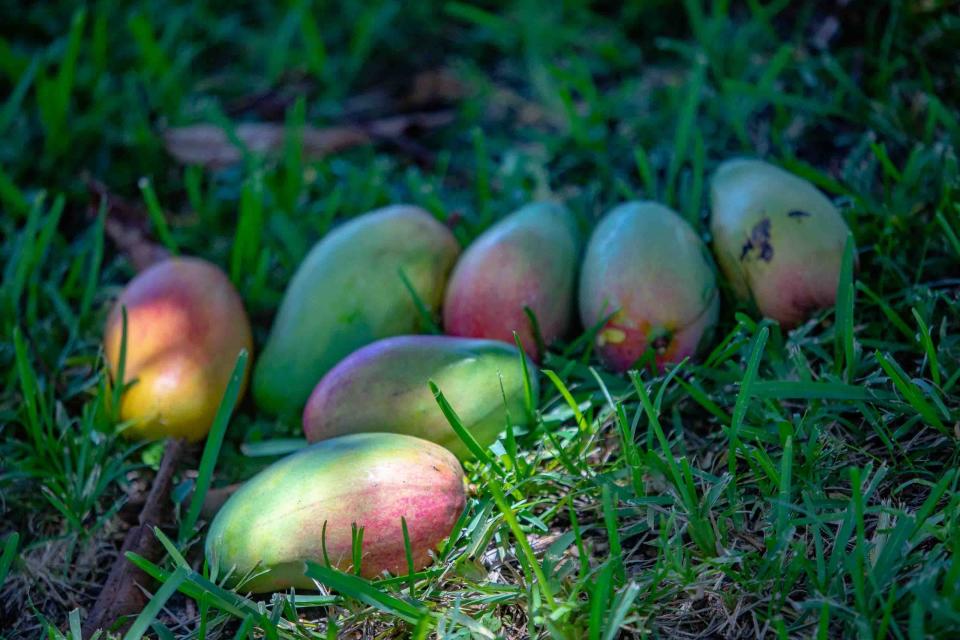
My sister gifted us a Julie mango tree shortly after we moved into our house 24 years ago so it took a few years, but we eventually became part of an annual tradition.
In April and May, we watch our trees and note all the mangoes as they begin to ripen. We shake our fists at the squirrels and birds who share our love of these tasty orbs — and sometimes pick the fruits before they ripen rather than let them fall prey to those critters.
And then it’s go time!
More food faves: Bite into some of the best burgers in Palm Beach County
We might peel with a knife before eating, we might skip the knife. We might cut pieces to share with loved ones if we have just a couple of mangoes, or we might not.
But once they start to ripen in earnest, the period of sheer gourmand decadence begins. Oh, and we know we'll probably put on a few pounds but it's worth it. The season won't last long.
Mango season here triggers rush to supply friends, family
And after we get past the first rush, we start sharing.
We will share with neighbors and co-workers. We will share with our friends and relatives elsewhere in the country who get their mangoes from the store — which we know are never as good as the ones we pick from our trees.
The drive to share beyond our neighborhoods and indeed across state lines isn't a well-kept secret. Folks at the post office know when it’s mango season by the number of shipments they have to deal with.
I overheard a helpful postal worker give advice to newbie shippers: Use the Priority boxes (price is set regardless of how heavy the box gets).
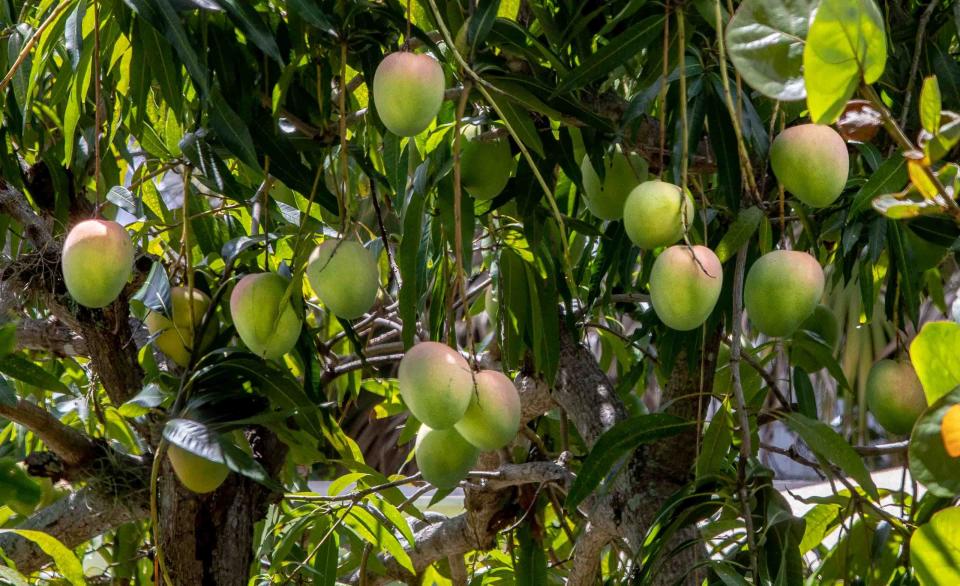
The same worker told me she tells newbies that they should not send fully ripe mangoes (they might spoil before your loved ones get them).
In late June, I stopped by the post office at Southern Boulevard and State Road 7 in Royal Palm Beach to collect boxes for mangoes only to discover the ones I wanted were gone.
Still the post office was hopping, and a number of people in line had boxes, some of which seemed to be bulging with mangoes. Karl Wint and Debbie Harris, natives of Jamaica who live in Royal Palm Beach, were among them.
Wint, who was carrying two boxes, said he ships mangoes every year to relatives in New York. He'd already mailed four boxes earlier in the week. Harris, who was with him, didn't have any boxes that day but said she would be mailing mangoes to a friend in Tennessee for her birthday in early July.
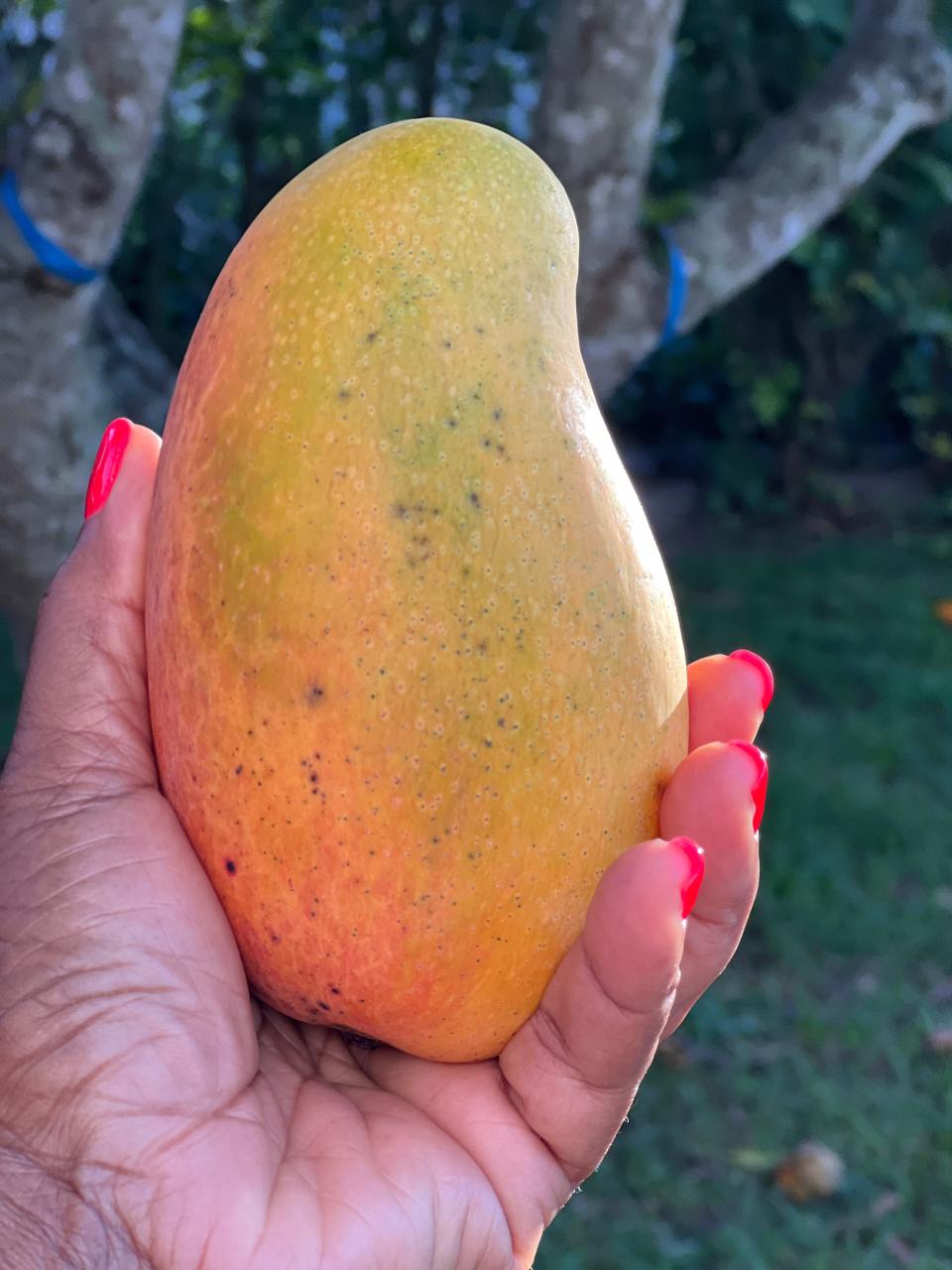
As I turned to leave, a staffer was restocking the mango-friendly Priority boxes. I was grabbing a few when I looked up and recognized the person across from me also loading up on boxes — Post Executive Editor Rick Christie. He had plans to send mangoes to his daughter in Orlando.
As I left the post office with my boxes, I was hailed by a couple in a car who wanted to know whether they had restocked the boxes. Another mango-rich conversation followed.
David and Dionne Mitchell of Royal Palm Beach — also natives of Jamaica — had East Indian mangoes that they were shipping to New York, Philadelphia, Tampa and Miami. Miami? Certainly there's no shortage of mangoes in Miami.
More summer news: Almost four years after Hurricane Dorian, Hope Town is living up to its name
"But it's East Indian," Dionne said, noting that she is one of the few people she knows who have the crème de la crème variety for Jamaica. Made perfect sense to me.
When I returned to the post office a few days later to mail my boxes, they were out of Priority mailing labels. I think I know why!
Come and get 'em! Free mangoes
Jessie Wang, a Suncoast High and University of Florida graduate, who is a doctoral student at Vanderbilt University in Nashville, was home in suburban West Palm Beach for the first few weeks of mango season.
Her family doesn't have a mango tree — yet. But “my mom sprouted a mango tree from a seed and it’s growing,” she told me.
Wang (also a friend of my daughter's) found her first mangoes of the season on the Wellington Buy Nothing site, an online space premised on giving things away and asking for things as well.
More: 'Buy Nothing' groups thriving in South Florida - and not just because the goods are free
Someone posted a giant wheelbarrow of mangoes on Buy Nothing, so Wang messaged the poster who lives in Loxahatchee and went by to collect some fruit.
“It was very neighborly,” Wang said.
A family friend's tree provided more. The couple is "retired and traveling so we reap the mangoes."
Wang and her family shared that bounty with friends and her aunt in Seattle.
And when it was time to return to Nashville recently, she took maybe 30 lbs. of mangoes in a checked bag, she said.
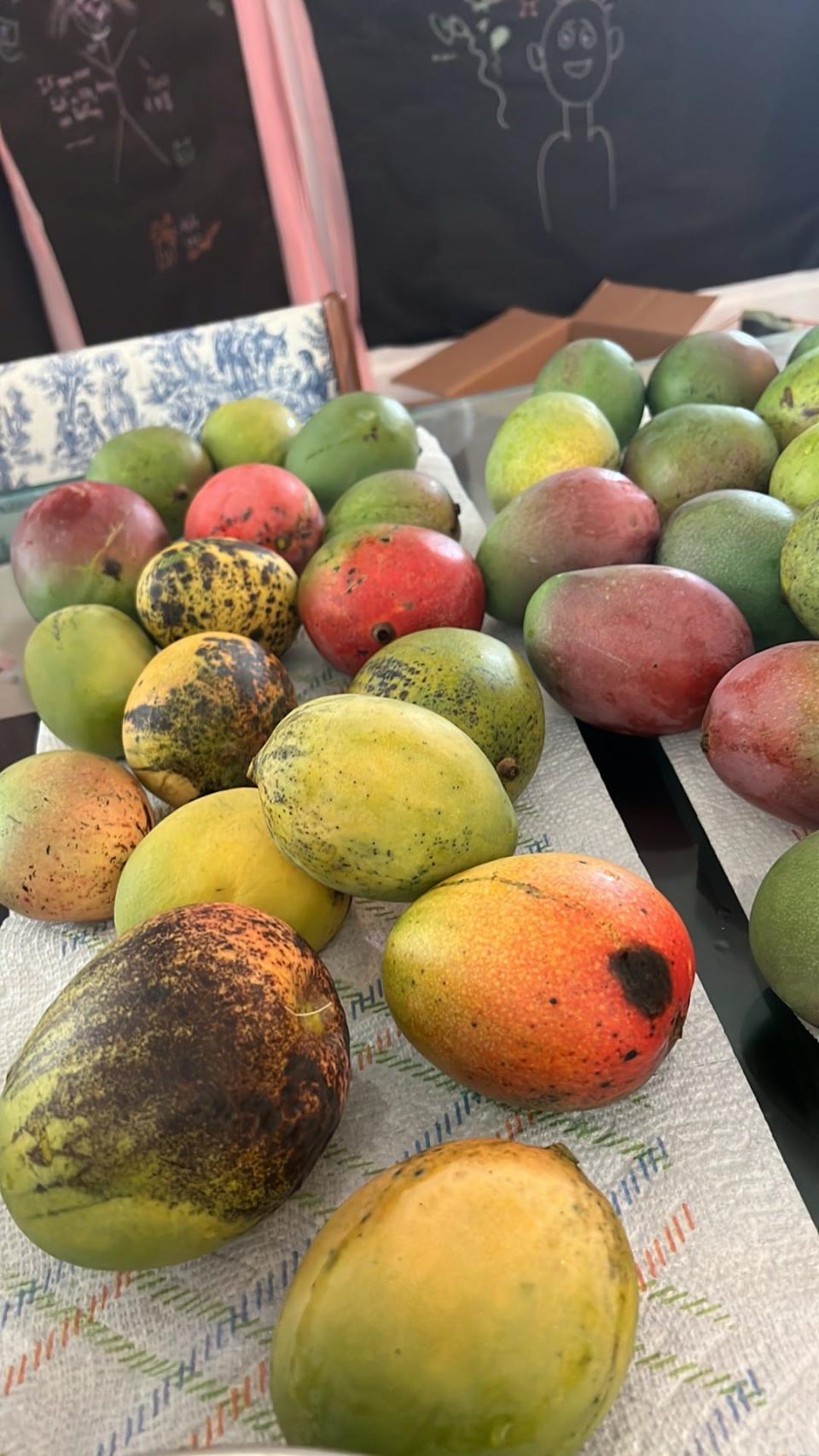
She's shared them with people in her office, but her plan is to prolong her mango-eating pleasure so she was strategic with the fruit she took with her. She selected them at varying stages of readiness “so that way I can pace myself and have mangoes for the summer.”
Wang could probably get mangoes at the grocery store, but "it just tastes better when it’s fresh from a tree."
She continued, “I just need them to last me a month.”
She'll be travelling after that.
Mango exchange binds neighborhood
Lisa Quillian grew up in the Orlando area and "never thought of mango as a Florida fruit," so she was surprised when she moved to South Florida and saw mango trees everywhere. Her husband, James, who grew up in Miami, had a mango tree at his family's Opa-Locka home during his teen years.
Fun fact: Mangoes are not native to Florida. The Rev. Elbridge Gale planted the country’s first grafted West Indian mango tree on a piece of land on West Palm Beach’s north end — now known as Northwood — in the 1880s.
When the Quillians moved into Osceola Park neighborhood in Delray Beach about 15 years ago, theirs was one of the few houses without a tree. The house next door had a very productive mango tree, but much of the fruit was going to waste, which bothered them.
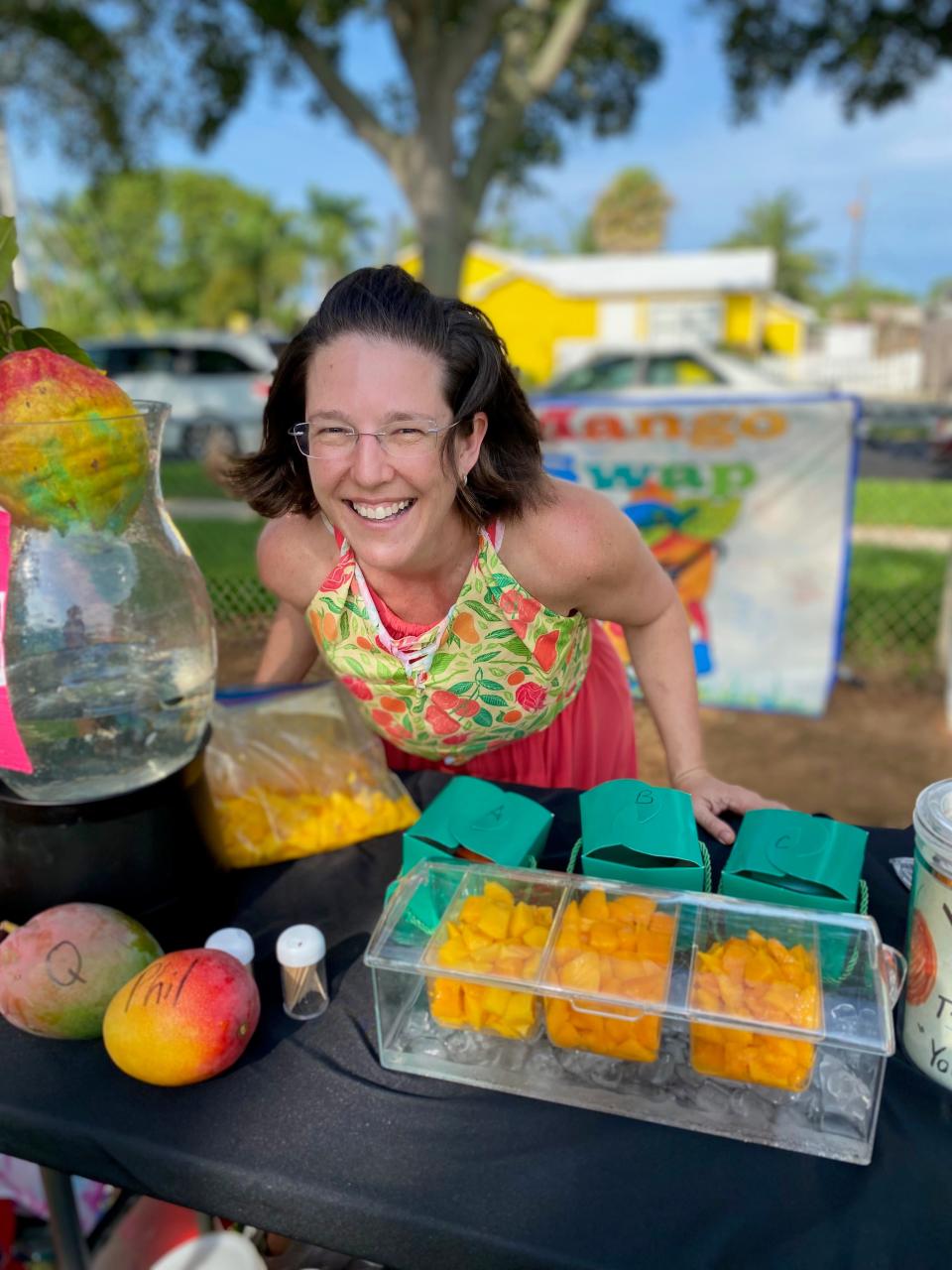
They eventually bought the house with the mango tree and soon became part of a friendly neighborhood competition about who had the best mango.
This prompted them to say, "So let’s have a little party and have a taste test," Quillian said.
Thus began the Osceola Park Mango Swap. The annual date is not set "until we see when the mangoes are in full swing" she said. This year's event was held June 18.
What started as a taste-testing event in 2012 has evolved into a full mango potluck and a fun day that includes games for the kids "using hard mangoes for bowling, toss or just balancing on your head," Quillian said.
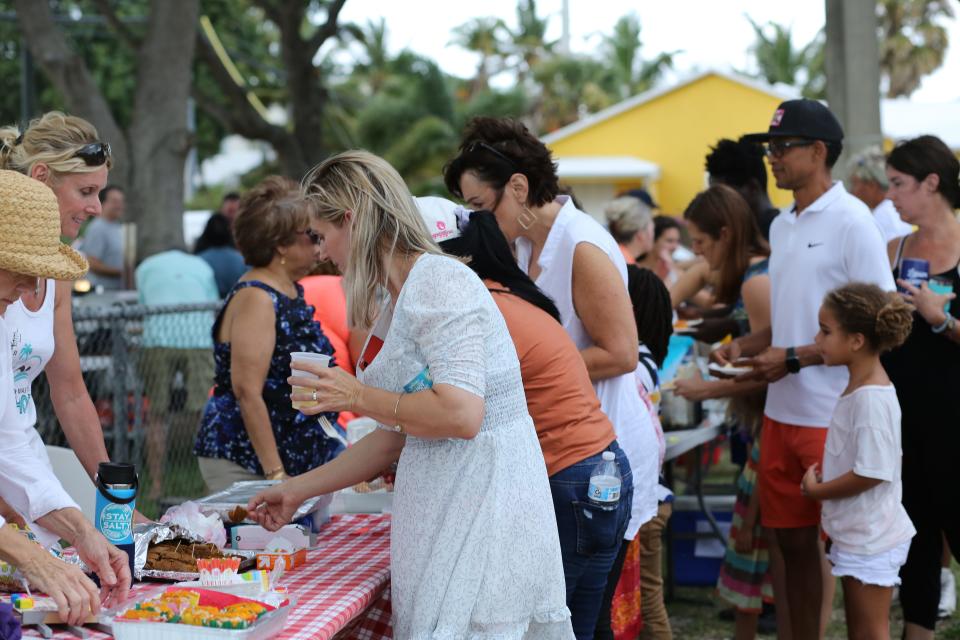
Neighbors who are sick of their mango trees, are happy to bring a bunch to the swap, Quillian said. The event also allows those people to connect with mango lovers who offer to come by their homes and pick any unwanted fruit.
The event helps to keep neighbors connected, and "whenever anybody moves in we invite them to the Mango Swap," she said.
Mango musings
I never really thought about why mango season brings me so much joy until I decided to write this story, but I think it is because it takes me back to the uncomplicated moments of my childhood in the Jamaican countryside.
For sure it's about more than mangoes.
After all, we had only one tired mango tree that hardly bore anything, though my father had property in the adjoining parish, which was a major producer of mangoes so we got hundreds each season. Also, my mother had a "mango lady" who would ride by on her donkey with the hampers filled to the brim with fruit. My mother would select what she wanted, pay and we would dive in.
While she made the occasional pie, our default was to just eat the mangoes.
During my childhood, weekends and breaks from school — especially the summer holiday — meant long hours exploring the backwoods of our district with my siblings. We would go looking for stands of guava, rose apple and hogberry trees, or go bird hunting armed with catapults (at least my brothers were). While it felt like we were doing hard-core adventuring, in retrospect, I now realize we rarely went more than a mile from home.
Some days the adventure was running through, and playing hide and seek in grass that was as tall as we were; and some days, it was lying on our backs and looking up at the clouds to see what shapes we could identify.
Definitely a simpler time, when my mother was the center of my world and my siblings and I all got along.
How times have changed: I have my own family now; my dear Mama passed in January; and I have complicated relationships with some of my siblings.
But I know for sure that deep down, no matter where I am in life, mango season reminds me I will always be that little country girl who delighted in eating whatever fruit was in season and running carefree through the grass with her siblings.
Sheer joy!
Carol Rose is the editor of Palm Beach Daily News, part of the USA TODAY Florida Network. You can reach her at crose@pbdailynews.com. Help support our journalism. Subscribe today.
This article originally appeared on Palm Beach Post: Mango season in South Florida is a community affair

